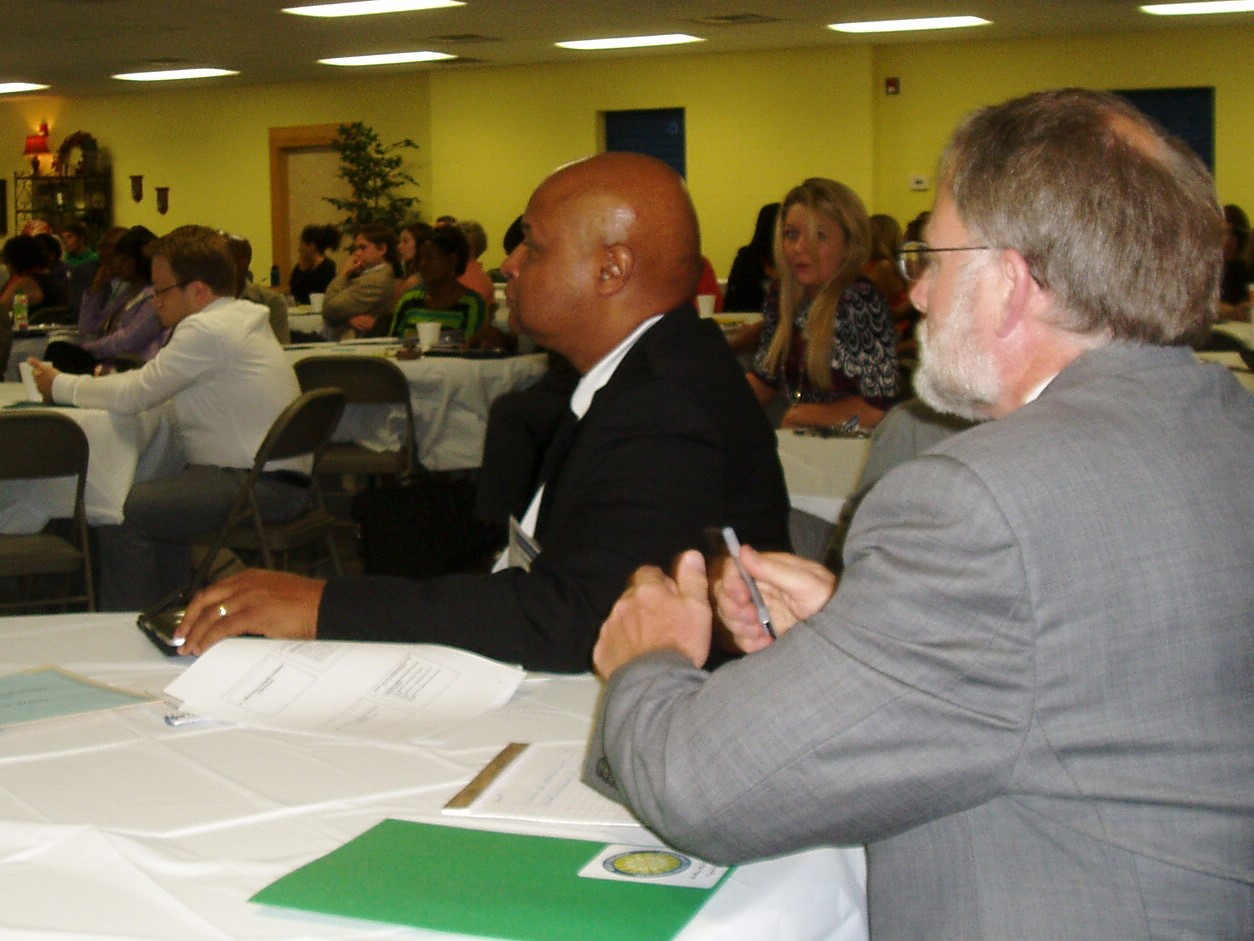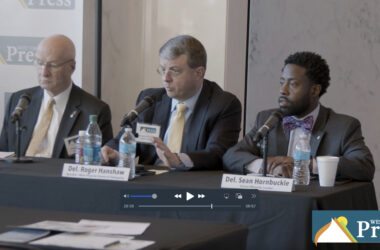Editor’s Note: The following article is part of the West Virginia Press Association’s series on the “Our Children, Our Future” Coalition. Journalist George Hohmann is following the coalition’s efforts, providing reports from its organizational meetings this month through its attempts have impactful legislation passed during the 2014 session of the West Virginia Legislative Session.
By GEORGE HOHMANN
WVPA REPORT
BECKLEY – Addressing issues that are problems across West Virginia gave Wednesday’s “Our Children, Our Future” workshop a broad scope of interest and attracted more than 100 activists and community leaders to the day-long workshop.
The West Virginia Coalition for Healthy Kids and Families, the West Virginia Center on Budget and Policy and 35 other organizations sponsored Beckley’s “Our Children, Our Future” workshop. Issues discussed at the workshop ranged from physical activity and physical education in the schools to substance abuse to comprehensive community revitalization.
The Rev. Matthew Watts, who heads the Hope Community Development Corp. on Charleston’s West Side, left, and Paul Sheridan, interim executive director of the American Civil Liberties Union of West Virginia, listen during the regional policy workshop on Wednesday in Beckley.
The policy workshops are part of OCOF’s plan to build momentum aimed at getting policy changes through the state Legislature next year. Kent Spellman, executive director of The Hub, based in Fairmont, said the “Our Children, Our Future” campaign has driven a great deal of policy talk around the state in recent months.
“Obesity is not an adjective, it is a disease. The diabetes curve mirrors the obesity curve. West Virginia continues to be No. 1 in adult diabetes.”
Dr. Jamie Jeffrey,
Project Director
Keys 4 Health Kids
Momentum-building efforts ranged from chanting “I can, you can, we can!” to group sessions that explored a total of seven issues.
Dr. Jamie Jeffrey led the group session on child obesity. “I’m a pediatrician and I have to go back to school to learn about high blood pressure and diabetes!” she said.
Jeffrey is project director of Keys 4 Health Kids, an initiative aimed at reversing child obesity by 2015. She pointed out that a study published last weekend by the Trust for America’s Health and the Robert Wood Johnson Foundation found that West Virginia is the fourth most obese state in the nation.
Since 1960, childhood obesity rates have tripled. “How have we allowed our children to suffer like this?” Jeffrey said. “Obesity is not an adjective, it is a disease. The diabetes curve mirrors the obesity curve. West Virginia continues to be No. 1 in adult diabetes.”
The Keys 4 Health Kids program is advocating a program called “5-2-1-0,” which is shorthand for “five or more servings of fruits and vegetables each day; two hours or less each day of recreational screen time; one hour or more each day of moderate-to-vigorous physical activity; and zero sugary drinks.”
Jeffrey and the group that worked with her agreed to focus on policies that promote physical activity and physical education in the schools.
Want to get involved:
Bridgeport Workshop: 10 a.m. Friday, Aug. 23, at the Bridgeport Convention Center. Topics include: removing soft drinks from the food stamp program, now known as the Supplemental Nutrition Assistance Program or SNAP; local and fresh food access policies; afterschool education; foster care reform; policies to expand home visiting programs; the state Earned Income Tax Credit; and Medicaid expansion.
The Rev. James Patterson, president of the Partnership for African-American Churches at Institute, spoke about substance abuse policies. “The consciousness of the dominant culture around us is a ‘war on drugs,’” he said. “I want to evoke a consciousness of an ‘army for recovery.’
“We’re really good at locking people up,” he said. “We lock people up for having drugs. We lock people up for being with other folks who have drugs.” The high rate of incarceration destroys families, he said. “There are 153,000 people waiting for treatment right now” in West Virginia.
At the end of their session, the substance abuse group agreed to work on treatment, transitional housing, recovery and funding for programs.
The Rev. Matthew Watts, who heads the Hope Community Development Corp. on Charleston’s West Side, led the group examining comprehensive community revitalization policies. He said efforts to revitalize the West Side have evolved over the years.
“We’ve got to improve the environment,” Watts said. “We have legislation in place. We need to get more money into those programs.”
Kathy Smith of Belington, Barbour County, sat with representatives of the American Civil Liberties Union of West Virginia, which is advocating for juvenile justice reform. Smith said her 17-year-old son has been held in a juvenile center in Boone County for 176 days. “The judge gave a verbal order in the courtroom on June 7 but he has not signed it,” she said. “Why is it we still don’t have a final order from a judge?”
Wednesday’s workshop concluded with a speech by Senate Majority Leader John Unger, D-Berkeley.
“So often we spend all of our time and effort to get one politician out and replace them with the one we want,” he said. “But you put your person in, the system wears them down,” and before you know it they’re acting like their successor.
“Instead of spending all of the effort to change the people, let’s change the winds,” Unger said. “If we do, we’ll get the support. Those who vote their conscience and do the right thing will continue to do so; those who will do the right thing but need the wind to their back will have the wind; and those who just want to get re-elected will vote with you to get re-elected.
“What you’re doing today is changing the winds in West Virginia.”
There will be another policy workshop Friday. It will be at the Bridgeport Convention Center. Topics include: removing soft drinks from the food stamp program, now known as the Supplemental Nutrition Assistance Program or SNAP; local and fresh food access policies; afterschool education; foster care reform; policies to expand home visiting programs; the state Earned Income Tax Credit; and Medicaid expansion.
Policies from both workshops will be honed at a Sept. 24 symposium in Charleston. At a meeting on Dec. 13, participants will vote on the 18 policies that will be pursued in the 2014 session of the Legislature.






